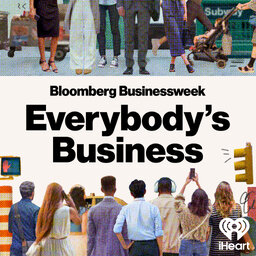Artificial Intelligence vs. Humanity
Artificial intelligence, or “AI” – the foundation of decades of science fiction and movies – has gone mainstream. It’s here. ChatGPT, a chatbot launched in late 2022, is a free, ask-me-anything tool that can write seemingly perfect essays and accurately answer most questions users throw at it. Its AI is built atop a vast reservoir of digital information and languages. Sydney, a glitchy and trippy Microsoft chatbot, recently told a New York Times reporter that it loved him, wanted to be alive and harbored destructive impulses. It's cool. It’s disturbing. It’s empowering. It’s vaguely threatening. It challenges us to wonder whether we’ll stay in control of the bots or whether they’ll control us.
For this episode, Tim spoke with both Parmy Olson, a Bloomberg Opinion technology columnist who is an AI guru, and Tyler Cowen, a genius economist and Bloomberg columnist, to help sort through all of this.
In 1 playlist(s)
Crash Course
Hosted by Bloomberg Opinion senior executive editor Tim O'Brien, Crash Course will bring listeners d…Social links
Follow podcast
Recent clips

Introducing: Everybody's Business
01:27

Taylor Swift vs. The World
36:16

Black Voters vs. The 2024 Election
43:43
 Crash Course
Crash Course